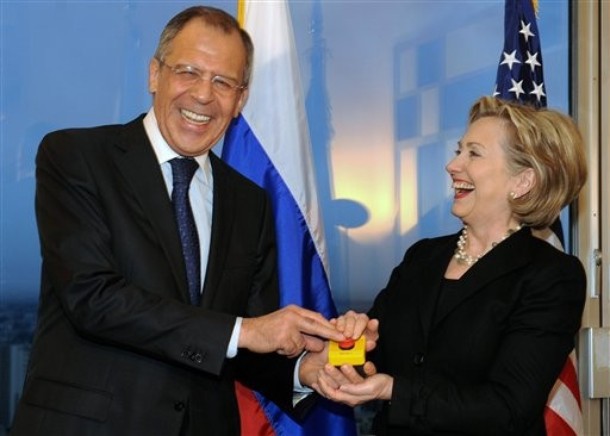“We are entering into our renewed relationship with our eyes open,” said Secretary of State Hillary Clinton five years ago, before presenting Russia’s foreign minister with the infamous bright red “reset” button.
Russia has pushed the “reset” button all right, resetting history and geography to take the Crimea back, while the U.S. and the European Union do virtually nothing. The White House announced Monday morning that President Barack Obama had imposed a set of sanctions on the Russian arms industry and senior Russian officials, but no one close to Russian President Vladimir Putin himself, according to the UK Telegraph.
The weakness of the west in facing the Russian seizure of the Crimea is likely to have a significant geopolitical effect, both in the short term and long term. Here are five of the most likely consequences of the :Crimea reset”:
1. China advances claims over territory and airspace. An aggressively nationalist China was already moving to broaden its air defenses and its claims to the Senkaku Islands, despite U.S. plans to “pivot” from the Middle East to the western Pacific. It will now be even more assertive, knowing there are few consequences.
2. Al Qaeda steps up its attempts to create an Islamic caliphate. The Obama administration, having dispatched Osama bin Laden, has left Al Qaeda to expand across Africa and the Middle East. Those hoping to establish an Islamic state in the ruins of Syria and Iraq will be encouraged by the failure of the west to defend the sovereignty of Ukraine, because the artificial borders of the Middle East seem even more vulnerable now.
3. Israel plans for completely unilateral action on Iran. It is clearer than ever before that the Obama administration has no ability to enforce its own “red lines” and no will to risk armed conflict. Israel will likely set aside the task of obtaining U.S. approval for a pre-emptive strike on Iran and will make independent plans–perhaps in coordination with Saudi Arabia, which has likewise learned that Obama is not to be trusted.
4. Europe gets serious about fracking. As my colleague James Delingpole of Breitbart London observes, one of the positive side-effects of the Crimea crisis is that the EU has realized that energy independence is vital to its security. It will start to reject pseudo-scientific “green” arguments in favor of oil and gas development.
5. Russia continues to challenge U.S. allies and create crisis. The Crimea crisis is hardly over, and may reach other parts of Ukraine, as well as NATO allies in Eastern Europe, as Putin tries the same trick again. He is also expanding Russian influence into Latin America. He will only stop when the U.S. stops retreating from any possible confrontation, and commits military resources to stopping his advance. That point is still very far away.

COMMENTS
Please let us know if you're having issues with commenting.